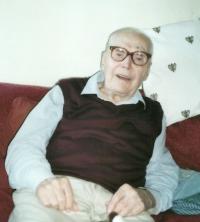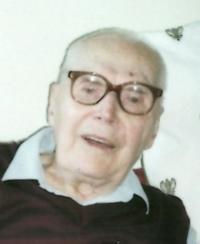Fortunately they did not arrest me in 1939 because I hid myself in a church

Download image
Prof. Dr. Josef Andrýs, CSc., was born October 14, 1920 in Třebechovice pod Orebem. After completing elementary school he studied at the prominent grammar school in Hradec Králové. After graduation he began studying at the faculty of medicine in Prague. He took part in the student protests in autumn 1939. When Czech universities were closed down, he began working in a leather factory in Třebechovice pod Orebem. In 1943 he was sent to do forced labour in the Krupp factory in eastern Silesia which produced tanks, armoured vehicles and ammunition. Later he was transferred to a local hospital. In early 1945 he managed to escape and get home. Immediately after the end of the war he went to Prague in order to continue with his studies at the medical faculty. Later he went to the recently established faculty of medicine in Hradec Králové. Josef graduated when he was twenty-nine years old and he specialized in obstetrics. After graduation from the university he received a job placement to Rimavská Sobota in Slovakia. Subsequently he worked in the hospital in Jaroměř and eventually at the army obstetrics clinic in Hradec Králové where he stayed until his retirement. He left the gynecology clinic in 1985. Afterwards he worked also as a company gynecologist or as a reviewing doctor in the Military Health Insurance company. He received a professor’s degree after 1989. Even after his retirement he continued to be a member of the Czech Gynecological and Obstetrical Society.

